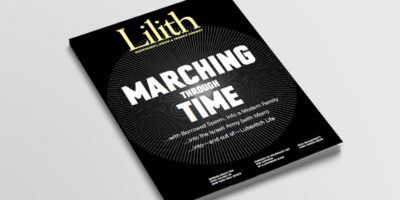Susan Weidman Schneider on Sarah Wildman’s “Paper Love”
An emerging genre of books seeks to reconstruct lives of people who vanished during the Holocaust. As the ranks of survivors themselves are dwindling, this probing is left to children, grandchildren, and sometimes even to strangers driven to know, from fragile clues about the lives lost, the facts and the feelings of those they’ve never known.
Paradigmatic of this search is the page-turning new memoir-cum-historical-uncovering by journalist Sarah Wildman, Paper Love: Searching for the Girl My Grandfather Left Behind (Riverhead Books, $27.95). The person Wildman searches for is in fact no girl, but a doctor in her twenties. Valerie Scheftel was a medical-school colleague and the “true love” of her grandfather, who left her in Europe when he managed to escape to America in 1938.
What Wildman discovers about Valerie (“Your Valy” she signs her letters) reveals a woman very much of her time. On the one hand, Valy’s proud professional life as a doctor — she had come alone to Vienna to attend medical school — was not constrained because she was a woman, but because she was a Jew. On the other hand, it was likely her female role as a good daughter that trapped her; after the Anschluss, it seems Valy cannot or will not abandon her mother to flee with her lover.
Wildman’s detective work is both provoked and aided by the cache of letters discovered in a filing cabinet after her grandfather died, letters from those left behind in the Hades that Europe had become, begging for a recommendation, for the funds for passage to America, for intervention with professional organizations that might issue a life-saving invitation to work in the United States. The letters lay bare the horrible poignancy of how little money it would have taken to save those lives — Valy’s included. But a penniless new immigrant himself, Karl Wildman couldn’t manage even those modest sums.
Karl started a small-town medical practice in the face of anti-Semitism, married an American Jewish woman from an established family, and presented himself as a man of high culture and good spirits, living an identity both authentic and also — at the same time — crafted so as to keep the Holocaust years at a remove. Wildman unpacks, thanks to the letters, what her grandmother termed a “carefully curated history.” Inheriting this legacy, tracking Valy in Berlin, Vienna and the Czech Republic while gestating “a little Jew” in her own womb, Wildman describes herself as very much a 21st- century Jew.
Paper Love is a real-life rendering of the quest undertaken in several recent works of fiction; Ayelet Waldman’s Love and Treasure, a novel in which a grandfather’s wartime past is unearthed via a piece of jewelry, is one example. It’s not surprising that these quest books are coming one after another now. So much wrenching uncertainty about lives that ended with no known concluding chapter, so many stories untold, so much that can’t now be retrieved except through fiction or the kind of empathic reconstruction of a life that Wildman assays here in her deeply compelling account of what likely happened to Valy.


